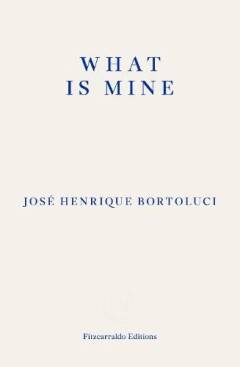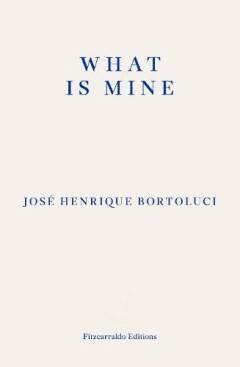
- Afhalen na 1 uur in een winkel met voorraad
- Gratis thuislevering in België vanaf € 30
- Ruim aanbod met 7 miljoen producten
- Afhalen na 1 uur in een winkel met voorraad
- Gratis thuislevering in België vanaf € 30
- Ruim aanbod met 7 miljoen producten
Zoeken
Omschrijving
A genre-bending and thought-provoking examination of capitalism and cancer - and recent Brazilian history - based on the author's interviews with his truck driver father.
In What Is Mine, sociologist José Henrique Bortoluci uses interviews with his father, Didi, to retrace the recent history of Brazil and of his family. From the mid-1960s to the mid-2010s, Didi's work as a truck driver took him away from home for long stretches at a time as he crisscrossed the country and participated in huge infrastructure projects including the Trans-Amazonian Highway, a scheme spearheaded by the military dictatorship of the time, undertaken through brutal deforestation.
An observer of history, Didi also recounts the toll his work has taken on his health, from a heart attack in middle age to the cancer that defines his retirement. Bortoluci weaves the history of a nation with that of a man, uncovering parallels between cancer and capitalism - both sustained by expansion, both embodiments of 'the gospel of growth at any cost' - and tracing the distance that class has placed between him and his father. Influenced by authors such as Annie Ernaux and Svetlana Alexievich, is a moving, thought-provoking and brilliantly constructed examination of the scars we carry, as people and as countries.
In What Is Mine, sociologist José Henrique Bortoluci uses interviews with his father, Didi, to retrace the recent history of Brazil and of his family. From the mid-1960s to the mid-2010s, Didi's work as a truck driver took him away from home for long stretches at a time as he crisscrossed the country and participated in huge infrastructure projects including the Trans-Amazonian Highway, a scheme spearheaded by the military dictatorship of the time, undertaken through brutal deforestation.
An observer of history, Didi also recounts the toll his work has taken on his health, from a heart attack in middle age to the cancer that defines his retirement. Bortoluci weaves the history of a nation with that of a man, uncovering parallels between cancer and capitalism - both sustained by expansion, both embodiments of 'the gospel of growth at any cost' - and tracing the distance that class has placed between him and his father. Influenced by authors such as Annie Ernaux and Svetlana Alexievich, is a moving, thought-provoking and brilliantly constructed examination of the scars we carry, as people and as countries.
Specificaties
Betrokkenen
- Auteur(s):
- Vertaler(s):
- Uitgeverij:
Inhoud
- Aantal bladzijden:
- 144
- Taal:
- Engels
Eigenschappen
- Productcode (EAN):
- 9781804270851
- Verschijningsdatum:
- 15/10/2024
- Uitvoering:
- Paperback
- Formaat:
- Trade paperback (VS)
- Afmetingen:
- 122 mm x 193 mm
- Gewicht:
- 226 g

Alleen bij Standaard Boekhandel
+ 30 punten op je klantenkaart van Standaard Boekhandel
Beoordelingen
We publiceren alleen reviews die voldoen aan de voorwaarden voor reviews. Bekijk onze voorwaarden voor reviews.








